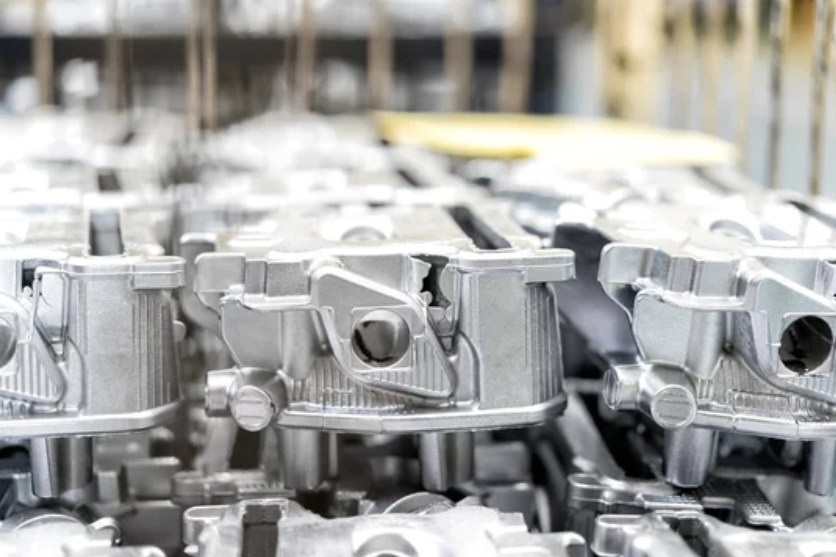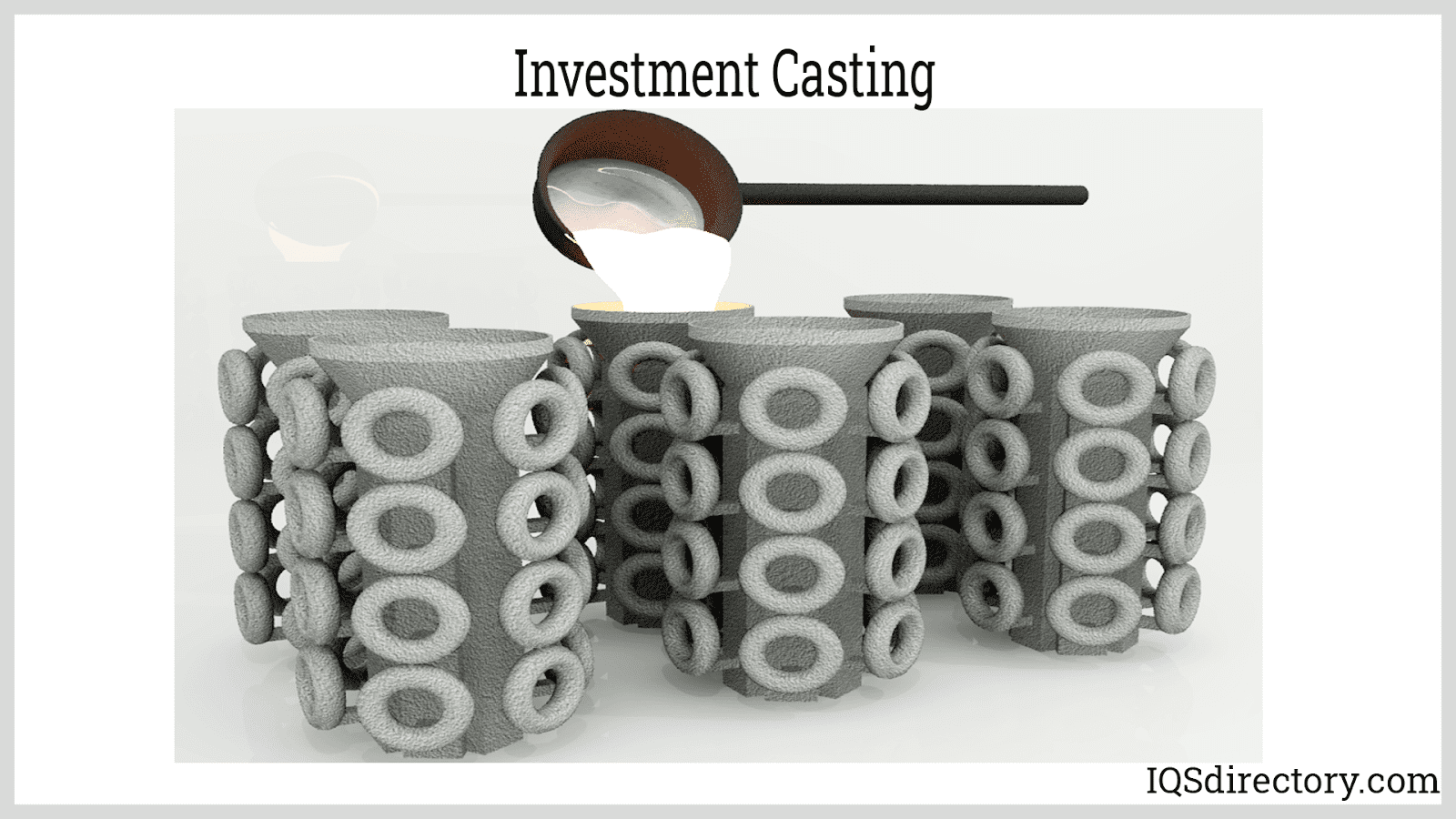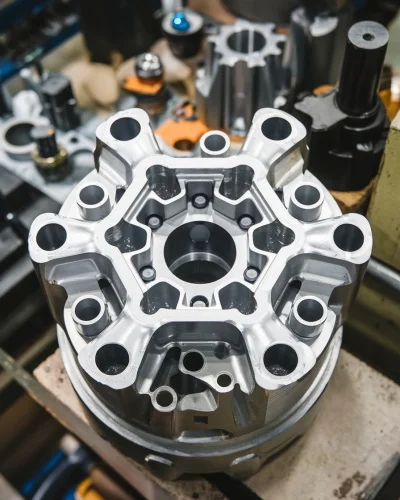The Role of Aluminum Foundries in Progressing Lightweight Manufacturing Solutions
Aluminum factories greatly add to the advancement of lightweight manufacturing remedies. Their innovative casting modern technologies yield high-strength, lightweight parts vital for sectors like vehicle and aerospace. This advancement not only improves item performance however also promotes sustainability via making use of recycled materials. As these shops adapt to emerging practices and innovations, they lead the way for future growths in manufacturing efficiency and environmental obligation. What lies ahead in this transformative trip?
The Benefits of Lightweight Materials in Manufacturing
As industries progressively look for effectiveness and sustainability, the fostering of light-weight materials in manufacturing has actually emerged as a vital method - Precision aluminum casting. These materials, specifically aluminum and compounds, offer numerous advantages that boost manufacturing procedures and item performance. Mostly, their decreased weight adds to reduce energy consumption throughout transport and operation, causing substantial cost savings
Lightweight materials promote the style of more complex geometries, permitting for better technology in product growth. This adaptability typically results in boosted functionality and efficiency, providing to the advancing demands of contemporary consumers.
In addition, making use of lightweight products can boost the long life of products because of their resistance to corrosion and fatigue. This durability not only decreases upkeep prices but also supports sustainability efforts, as longer-lasting products add to much less waste. To summarize, the advantages of light-weight products are essential in driving effectiveness, development, and environmental duty in manufacturing.
Advancements in Aluminum Spreading Technologies
Current advancements in light weight aluminum spreading technologies are revolutionizing the production landscape, specifically in the production of light-weight components. Developments such as high-pressure die casting and vacuum cleaner pass away spreading have actually considerably improved the accuracy and surface area finish of light weight aluminum components - Aluminum Casting Company. These approaches enable the development of complex geometries while decreasing product waste and improving mechanical residential properties

Furthermore, the implementation of real-time monitoring systems assures quality assurance throughout the spreading process, leading to even more constant product outcomes. Collectively, these innovations not just enhance the efficiency of light weight aluminum components but also support the market's shift in the direction of more sustainable production techniques.
Applications of Light Weight Aluminum Parts in Different Industries
While aluminum elements have actually long been made use of in different sectors, their adaptability and lightweight homes continue to drive cutting-edge applications across industries such as vehicle, aerospace, and construction. In the automobile sector, aluminum is significantly utilized for engine blocks, wheels, and body panels, boosting fuel effectiveness and performance. Aerospace makers leverage aluminum for aircraft frameworks and components, capitalizing on its strength-to-weight ratio to enhance gas economy and payload capacity.
In the building market, light weight aluminum is favored for home window frames, roofing, and structural aspects, providing toughness and resistance to deterioration while reducing overall building weight. Furthermore, the electric and electronic devices sectors gain from aluminum's conductivity and lightweight nature, utilizing it in electrical wiring, enclosures, and warm sinks. These varied applications highlight the essential Aluminum Foundry duty of aluminum elements, which not only meet industry demands but also contribute to innovations in item design and functionality throughout several areas.
Sustainability and Energy Effectiveness in Aluminum Foundries
The aluminum shop sector plays an essential role in promoting sustainability and energy efficiency, especially as demand for lightweight elements remains to grow throughout various industries. Factories are significantly taking on eco pleasant methods, such as making use of recycled aluminum, which considerably minimizes energy intake and greenhouse gas exhausts contrasted to main light weight aluminum production.
Moreover, innovations in casting technologies enhance energy effectiveness by optimizing the melting procedures and reducing waste. Strategies like die casting and investment spreading permit exact material use, lessening excess and scrap.
Additionally, many shops are investing in renewable resource resources to power operations, additionally reducing their carbon footprint. Implementing energy administration systems makes it possible for foundries to keep track of and boost power use, ensuring they run at peak efficiency.

Future Patterns in Lightweight Manufacturing Solutions
Exactly how will emerging innovations form the future of lightweight manufacturing remedies? Developments such as advanced materials, automation, and additive manufacturing are readied to redefine production processes. The assimilation of clever production modern technologies, including the Internet of Things (IoT) and expert system (AI), will certainly make it possible for real-time surveillance and optimization, improving effectiveness and lowering waste.

As sustainability proceeds to be an extremely important worry, light-weight options will progressively concentrate on reusing and reusing products, straightening with circular economy principles. This evolution in light-weight production will certainly not only enhance product efficiency but also add to environmental goals, ensuring that the sector continues to be competitive in a swiftly altering market landscape.
Often Asked Questions
Exactly How Do Light Weight Aluminum Foundries Make Sure Quality Control in Manufacturing?
Light weight aluminum shops ensure quality control in manufacturing through extensive testing, standard procedures, and constant surveillance - Aluminum Casting Company. They execute experienced employees and advanced innovations to maintain consistency, lower defects, and fulfill industry requirements throughout the manufacturing procedure
What Are the Key Tests Dealt With by Light Weight Aluminum Foundries?
Light weight aluminum shops deal with challenges such as changing resources expenses, maintaining production performance, guaranteeing consistent quality, adjusting to technical innovations, and meeting environmental guidelines, every one of which influence their overall functional performance and competition in the market.
How Does Aluminum Recycling Impact Shop Operations?
Aluminum recycling considerably enhances foundry operations by minimizing resources prices, reducing energy intake, and lowering environmental effect. This sustainable practice enables factories to boost efficiency while fulfilling increasing need for light-weight, high-performance aluminum products.
What Abilities Are Needed for Workers in Aluminum Foundries?
Workers in aluminum shops call for skills in metallurgy, machining, quality control, and safety and security practices. Effectiveness in running machinery, understanding alloy properties, and problem-solving are likewise necessary for effective manufacturing and keeping high safety and security criteria.
How Do Aluminum Foundries Deal With Waste Administration?
Aluminum foundries handle waste through recycling scrap metal, making use of reliable waste segregation techniques, and adhering to environmental policies. They implement sustainable methods to decrease garbage dump payments, making sure that harmful products are disposed of properly.
Light weight aluminum foundries substantially contribute to the development of light-weight manufacturing remedies. Recent advancements in light weight aluminum casting innovations are revolutionizing the manufacturing landscape, particularly in the production of light-weight components. While aluminum parts have long been utilized in different markets, their convenience and light-weight residential properties continue to drive innovative applications across fields such as auto, aerospace, and construction. Furthermore, the electric and electronic devices sectors benefit from aluminum's conductivity and lightweight nature, using it in electrical wiring, units, and warmth sinks. The aluminum foundry industry plays a vital role in promoting sustainability and energy effectiveness, particularly as demand for lightweight components continues to grow across different markets.